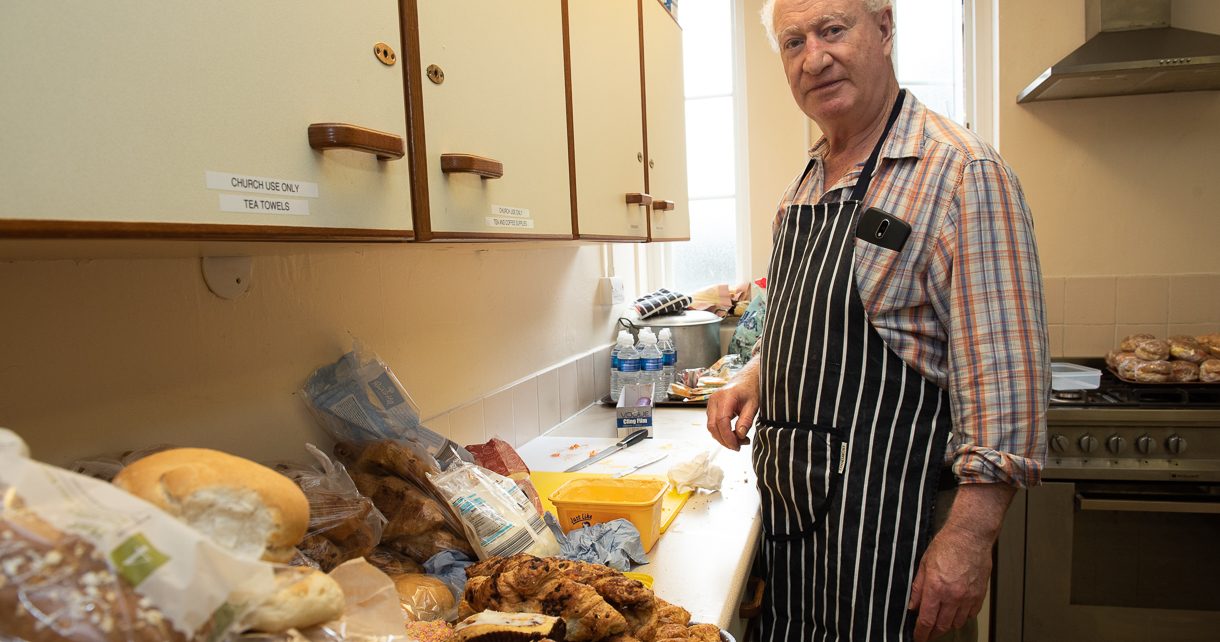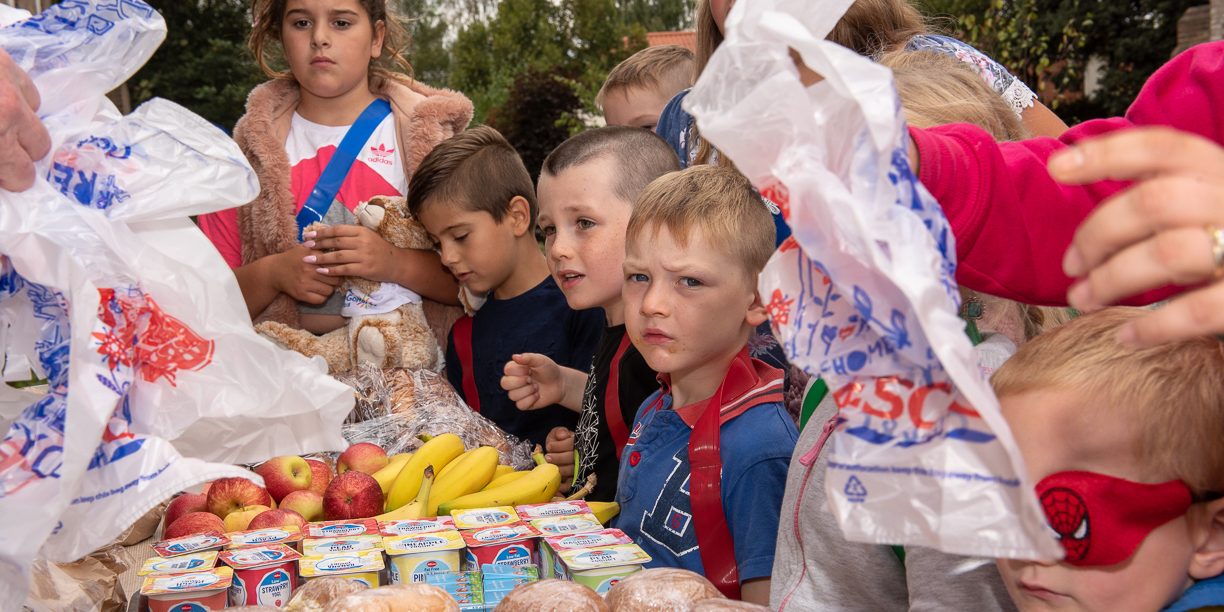So much anger, so much pain
Ahead of the UK premiere of Ken Loach’s latest film, I, Daniel Blake, one reviewer called it a “joyous, funny and moving portrait of man”.
At the heart of this portrait is the film’s title character, Daniel Blake, and at the heart of Blake a 59-year-old joiner who, suddenly too ill to work, must traverse the bureaucratic heartlessness of the UK benefits system – is, incongruously, a stand-up comedian, Dave Johns.
It’s his first feature film ever, and already Johns is being talked about as a possible Oscar contender for Best Actor.
UNITElive caught up with Johns ahead of his speech today (September 25) at the Real Britain fringe on the first day of the Labour Party Conference, hosted by Unite and the Daily Mirror.
“We talked mostly about football,” Johns noted, recalling a conversation he had with Ken Loach when he was first being considered for the role.
“And of course, Ken being Ken, he wanted to know where I was from, about my family and so on.”
After a few auditions, Johns got the part and found himself immersed in an environment that challenged him like never before.
“He wants the truth from his actors all the time,” Johns said of Loach, who gave the film’s cast only two or three pages of script each day of filming.
“I had no idea what was going to happen at the end of the film. That’s why I think his films have such a real quality about them. Filming it was like living real life – one day at a time.”
The truth that Ken Loach has demanded of his actors is a truth that’s resonating with audiences not only here in the UK but across the world.
“At all these festivals in Europe, everyone tells me that what’s happening in the film is happening in their home countries – it’s happening in Italy, it’s happening in Spain, it’s even happening in America. It’s this profound sense that working-class people have of being left behind and that the system we have, it’s not for them. There’s so much anger and so much pain.”
While Johns in many ways can inhabit the character of Daniel Blake from personal experience – they’ve both come from working-class families in the North East and have both worked in construction – the actor has never had to sign on to the modern austerity-era benefits system as we now know it.
â€Absolutely horrified’
“Before I got involved with this film, I had no idea that benefits sanctions existed. The idea that you could lose your benefits for weeks if you’re one minute late to a Jobcentre appointment – and this happens to people all the time now – I was absolutely horrified.”
Before filming started, Johns recalled that Loach asked him to fill out the form that’s required to sign on to Employment Support Allowance for workers who are too ill or disabled to work – all 52 pages of it.
“I came back to him and said, â€I tried but I just couldn’t do it.’ It’s completely insane.”
Johns believes that it is the ideological diktat of austerity that has turned the once robust and supportive welfare state into a Kafkaesque machine.
“The amazing thing about the system we have now – it was set up to save money, but they’ve ended up spending so much more funding the bureaucracy of it all. For example, by outsourcing the assessments to private contractors instead of being signed off by your doctor, the government is spending enormous sums of money that should be going to the people who actually need it.”
What’s more, the government’s austerity agenda, propagated in drip-feed fashion by the media, has a way of completely transforming the way people see and understand themselves and their neighbours, John notes.
“With this system of benefits sanctions, with the stroke of a pen, anyone who signs on is immediately labelled a â€scrounger’ – and this then sets the working class against each other. People who are in work think of the people who might need support, â€Well, I’m working and they’re just lazy, why should I help them?”
The social security system of which Johns does have experience – when you were supported if you were ill or there wasn’t any work, instead of being hounded by the department of work and pensions at every turn – existed on the underlying assumption that people wanted to work.
“And that should be the assumption now because it’s true,” he argued. “We have to get rid of this vicious myth that people are inherently lazy and don’t want to earn money to support themselves and their families. If there are people who don’t want to work these days, it has more to do with what is available to them – zero-hours contracts, these so-called flexible jobs that aren’t proper jobs and only benefit the employer.”
Hope?
To be sure, I, Daniel Blake is in many ways a grim film that reflects the grim reality of our modern benefits system – a system which often has fatal consequences. But amid this darkness, is there any hope?
“Of course there’s hope – without hope we’re done for,” Johns said.
He sees hope in the many young people who’ve in only the last few years become deeply engaged in politics. He sees it too in the ordinary people he’s met during filming who run food banks out of a deep sense of conviction that they’ve had enough of the way things are.
And viewers of the film will see that same flicker of hope in the tender friendship cultivated between John’s character Blake and Katie, a single mother also caught in the benefits system’s web. This friendship is a distillation of precisely what Johns says is largely missing now and what the working-class must claim back if we want the system to change – a renewed sense of community.
Reclaiming that community among the working class, John believes, will necessitate a change in the public consciousness that’s been moulded for decades by Thatcherite individualism.
“We need to counter all those negative stories drip-fed by the media about benefits cheats that only divide us, with positive stories like I, Daniel Blake, stories that show that a welfare state that benefits all of us is a good thing.
“We’re now constantly told that life is just about â€getting on, getting on, never mind other people.’ But we need to reclaim the idea that there is power in collective participation – through unions, through our local communities, through political action.”
Of his speech at the Labour Party Conference fringe today, Johns says that he’ll “leave the politics to the politicians.
“I’m just telling my story from the perspective of a comedian, an actor and an ordinary person from a working-class family,” he said. “I’m talking about how filming I Daniel Blake fundamentally changed me and helped me see the bigger picture.”
It’s this bigger picture that Johns hopes others will understand after seeing the film – a bigger picture that all starts with one person’s story.
“The film makes no apologies about its politics. But its politics come from the story – the story of Dan and Katie trapped in the system and trying to get on with their lives.”
It’s a story that we are just one step away – an accident, an illness, a job loss – from it becoming our own story too, John notes.
In this sense, we are all Daniel Blake.
Watch Dave Johns speak at the Real Britain fringe, broadcast live online, September 25 from 12:30pm-2pm here.
 Like
Like Follow
Follow


